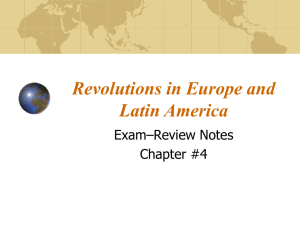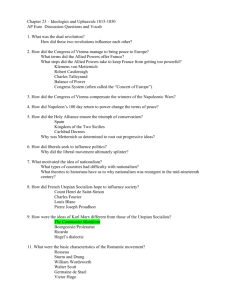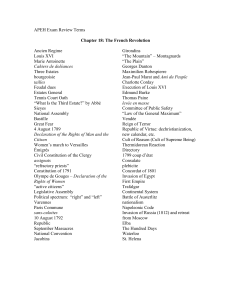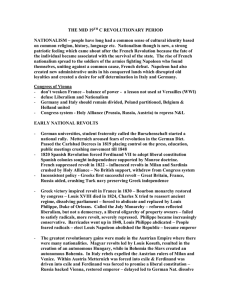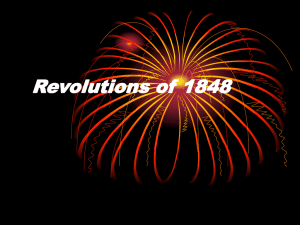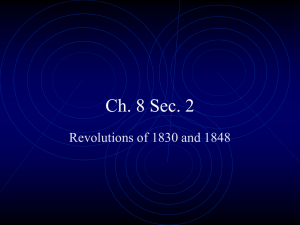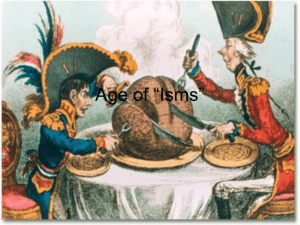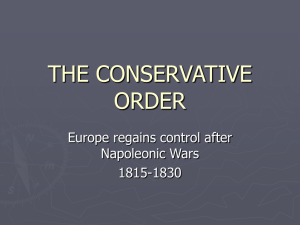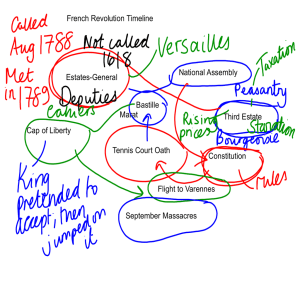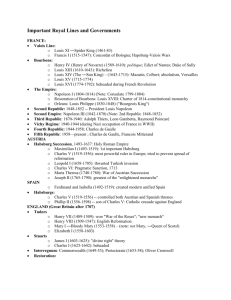Revolutions of 1830 and 1848
advertisement
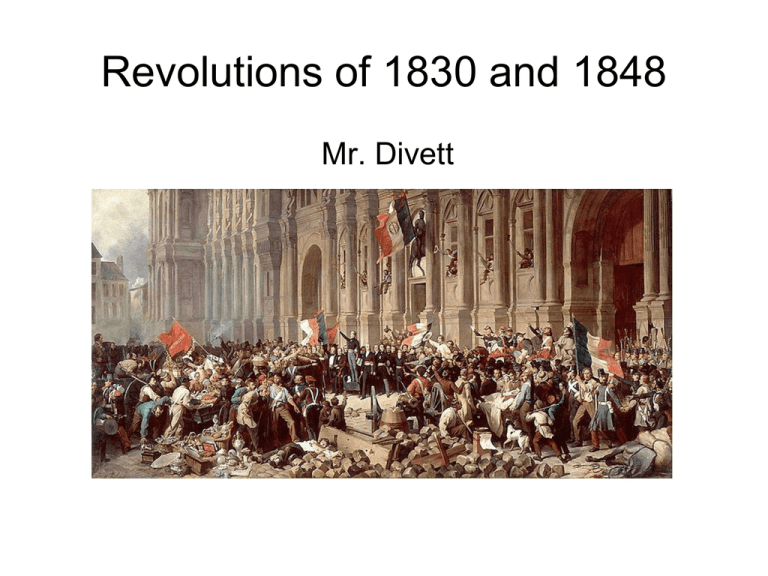
Revolutions of 1830 and 1848 Mr. Divett French Rebels The Congress of Vienna restored Louis XVIII to the French throne. He issued the Charter of French Liberties. This: Created a two-house legislature Allowed limited freedom of the press Louis XVIII still had a lot of power. Louis XVIII Citizens Lead the July Revolution Louis XVIII died in 1824. His brother, Charles X, took over the throne. Charles was an absolutist. In July of 1830 he: Suspended the legislature Restricted the press Limited the right to vote The citizens were unhappy. Charles X Liberals and radicals respond with force in Paris. They barricaded the narrow streets. They shot at soldiers and threw rocks and roof tiles at them. They took over Paris. Charles X abdicated and fled to England. Revolution of 1830 “Citizen King” Rules France With no king, radicals wanted to set up a republic. Moderate liberals preferred a constitutional monarchy. They chose Louis Philippe as king, the revolutionary cousin of Charles X. He was called the “citizen king” because his power came from the people. Louis Philippe Louis Philippe Louis Philippe Louis Philippe: Was friends with the bourgeoise Dressed like them Extended suffrage to wealthy citizens Favored the middle class at the expense of the workers Reform Spreads “When France sneezes, Europe catches cold.” Metternich The revolution in France triggered revolutions across Europe. Most were stopped. This still shook up the rulers, and encouraged reform. Success: Belgium The Congress of Vienna had united the Austrian Netherlands (Belgium) and the Kingdom of Holland under the Dutch king. Belgium Holland French-speaking Dutch-speaking Catholic Protestant Manufacturers Traders Belgian citizens fought against Dutch troops. Britain and France supported Belgium and they became independent in 1831. Belgian Independence Failure: Poland After being divided, most of Poland was given to Russia in Congress of Vienna. The Polish people revolted against Russian forces and were crushed. Many fled to Western Europe and the United States. Another French Revolt in 1848 In the 1840s people began to be unhappy again. Causes for unhappiness: Corruption in Louis Philippe's government Recession Lack of suffrage Conditions like 1789 1848 “February Days” In February 1848 chaos broke out in the streets when the government kicked the critics out of public meetings. Streets were blocked by the public. Louis Philippe abdicated. Socialist leaders created the Second Republic. February Days “June Days” Upper and middle class didn't like the national workshops. In June, the middle class again rioted in the streets against the socialists. A New Napoleon By the end of 1848 the National Assembly issued a constitution for the Second Republic. The constitution: Created a powerful president A one-house legislature Suffrage to all adult men This was the widest suffrage in the world at the time The people elected Louis Napoleon (nephew of Napoleon Bonaparte) They thought he was a common man Napoleon III Napoleon declared himself emperor (Napoleon III) and ended the republic. He used a plebiscite to win public approval to seize power. He enjoyed economic prosperity but eventually got too adventurous. Revolution Surges Through Europe Workers needed relief from the miseries of the industrial revolution. The Middle-class liberals wanted more political power and more rights for men. These grievances, as well as the 1848 revolts in Paris, sparked a new wave of European revolution. Austria Metternich censored the press. Literature was smuggled. Revolts broke out. Metternich resigned and fled in disguise. Louis Kossuth, a journalist, led Hungarian nationalists who demanded: An independent government An end to serfdom A written constitution to protect basic rights The Austrian government agreed, though this only lasted a moment before they destroyed the rebels. Italy In Italy, Nationalists wanted to set up a constitutional government. Italians set up independent republics. Revolutionaries expelled the pope. Austrian troops ended the new governments. The French army restored the pope to power in Rome. German States Germans suffered: A potato famine Economic hard times Prussian liberals forced King Frederick William IV to agree to a constitution written by elected officials. He dissolved the assembly within a year. The Frankfurt Assembly met throughout 1848 and offered the crown of Germany to Prussia's Frederick William IV. Revolution in German States
